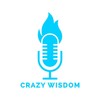
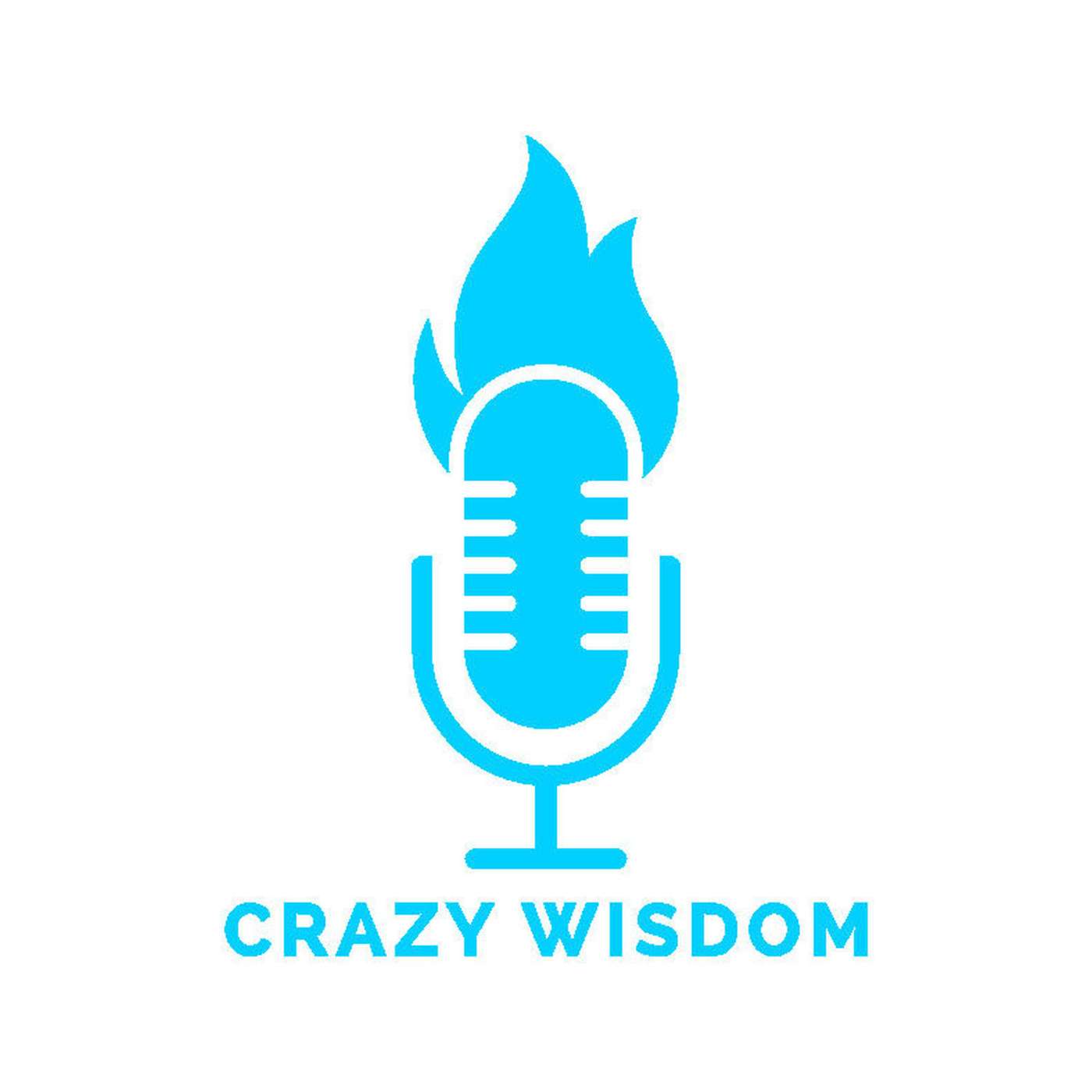
Crazy Wisdom
Stewart Alsop
In his series "Crazy Wisdom," Stewart Alsop explores cutting-edge topics, particularly in the realm of technology, such as Urbit and artificial intelligence. Alsop embarks on a quest for meaning, engaging with others to expand his own understanding of reality and that of his audience. The topics covered in "Crazy Wisdom" are diverse, ranging from emerging technologies to spirituality, philosophy, and general life experiences. Alsop's unique approach aims to make connections between seemingly unrelated subjects, tying together ideas in unconventional ways.
Episodes
Mentioned books

May 13, 2024 • 1h 17min
Automate to Innovate: How AI is Reshaping Software Engineering
AI expert Eric Rowell discusses the transformative impact of artificial intelligence on software development, highlighting automation of mundane tasks, career paths in tech, AI's role in improving coding education, challenges of managing human engineers vs AI agents, and the changing landscape for engineers in an AI-driven industry.
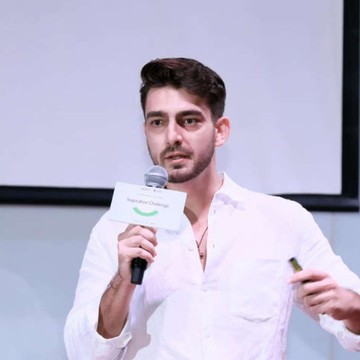
May 10, 2024 • 45min
Small Giants: How Southeast Asia’s Mom & Pops Power the Economy
In this episode of the Crazy Wisdom Podcast, I, Stewart Alsop, am joined by Avetis Muradyan, Chief Technology Officer at Mobile Interactive, to discuss a range of topics from China's economic stability and supply chain innovations in Southeast Asia, to the technological advancements in Chinese manufacturing. We also touch upon the geopolitical dynamics of Indonesia, the impact of economic policies on innovation, and the vibrant entrepreneurial spirit of South America. Avetis shares insights from his extensive experience in Asia and reflects on the global economic landscape. For more about Avetis's work, you can find him on LinkedIn and read his contributions on the Palladium author's page, or follow him on Twitter @AvetisMuradyan Check out this GPT we trained on the convo Timestamps 00:00 - Introduction and brief overview of Avetis Muradyan's recent visit to China, discussing societal and economic stability contrary to the "collapse narrative." 05:00 - Discussion about supply chain innovations in Southeast Asia, particularly the significant role of mom and pop shops in local economies. 10:00 - Debate on the position and potential of Indonesia within Asian geopolitics, reflecting on historical expectations versus current realities. 15:00 - Shift to technological advancements in China, focusing on the rapid development and improvement of Chinese manufacturing sectors, including automotive and truck design. 20:00 - Exploration of global shifts in manufacturing and deep tech innovation, comparing Western and Chinese approaches to technological development and industrial strategy. 25:00 - Reflections on economic policies, the impact of free capital during economic crises, and societal values influencing national and global economics. 30:00 - Personal anecdotes about experiences in China, comparing past and present manufacturing landscapes, and the broader implications for global economic shifts. 35:00 - Discussion on perceived conflicts between the U.S. and China, arguing against the idea of significant ideological or economic clashes between the two nations. 40:00 - Examination of South America's entrepreneurial spirit and personal freedom, discussing the cultural and economic vibrancy of Brazil and Argentina. 44:00 - Conclusion of the podcast with final thoughts on the abundance and potential of the Western Hemisphere, and information on how to connect with Avetis Muradyan for further discussions. Key Insights Economic Stability in China: Avetis Muradyan discusses the misconception of China's economic collapse, emphasizing the country's resilience and growth despite global narratives that suggest otherwise. He points out that, contrary to the collapse narratives, China has emerged as a significant global player, particularly highlighted by its ascent to become the world's largest car exporter. Supply Chain Innovations in Southeast Asia: Muradyan sheds light on the critical role of small mom and pop shops in Southeast Asia’s economies. These establishments, he notes, are pivotal in the region's retail ecosystem, accounting for a significant portion of retail sales. He also discusses the rapid digital transformation within these small businesses and its impact on local economies. Indonesia's Geopolitical Position: The discussion delves into Indonesia's potential and its complex internal dynamics, which include a significant military presence that does not align with its geographical identity as an archipelago. Muradyan explores the paradoxical elements of Indonesia’s development and its strategic geopolitical role between major powers like the US and China. Technological Advancements in China: There is a significant focus on the evolution of Chinese manufacturing, where Muradyan highlights the shift from low-quality production to high-quality, innovative manufacturing processes, particularly in the automotive and tech sectors. This shift illustrates China's broader industrial strategy to climb up the value chain. Economic Policies and Global Impact: Muradyan critiques recent global economic policies, particularly zero-interest policies, which he believes have led to missed opportunities for genuine innovation. He discusses how these policies have influenced both economic stability and developmental priorities worldwide. Cultural and Entrepreneurial Dynamics in South America: Muradyan praises the unique entrepreneurial spirit of South America, particularly in Brazil and Argentina. He discusses how cultural vibrancy and a focus on personal freedom contribute to a dynamic economic environment that fosters self-improvement and resilience. Reflections on Global Economic Shifts: Finally, Muradyan reflects on the broader implications of manufacturing and economic shifts from the West to East, particularly how these shifts are redefining global economic centers. He uses personal anecdotes from his experiences in China to illustrate the dramatic transformations he has witnessed firsthand, comparing them to previous Western manufacturing prowess.

May 6, 2024 • 58min
Navigating Probabilistic Realities: Principles, Sheet Metal, and AI Reflections with Aaron Lowry
In this episode of the Crazy Wisdom podcast, host Stewart Alsop sits down with Aaron Lowry, an experienced consultant and returning guest. They discuss a wide range of topics, including Lowry's work in rebuilding custom vehicles, the value of blending aesthetics with engineering, and the challenges of balancing principles and propositions in problem-solving. They also explore the evolving world of artificial intelligence, contrasting its limitations with human intelligence, and consider its impact on creative expression. Connect with Aaron on Twitter at @Aaron_Lowry for more insights into his projects and ideas. Check out this GPT we trained on this conversation Timestamps 00:00 - Stewart Alsop introduces Aaron Lowry, discussing their previous conversations and current interests. They mention the makerspace and complexities in physical and software creation, while Lowry shares insights on sheet metal work and its principles. 00:05 - Stewart talks about challenges in crafting and how quick access to information on computers may impact patience. He appreciates Lowry's language of attunement and asks for Lowry's views on AI, given that he hasn't been directly involved in building it. 00:10 - Lowry discusses intelligence, consciousness, and the reciprocal relationship between agent and environment. He explores challenges in defining intelligence, noting the mirror-like effect of AI reflecting our own limitations. 00:15 - Stewart discusses how filtering AI models reduces their utility. Lowry describes prompt injection as a way to navigate AI limitations while emphasizing the importance of understanding the parameters that bound the data set. 00:20 - Lowry acknowledges the energy required to maintain AI models, comparing it to the efficiency of the human brain. He stresses the probabilistic nature of human intelligence versus the deterministic nature of machine learning. 00:25 - Lowry distinguishes between the infinite potential of probabilistic intelligence and deterministic frameworks. He compares real-world interaction to a video game, noting how deterministic thinking can make people behave like NPCs. 00:30 - They discuss navigating principles versus propositions, likening it to piloting a sailboat. Maintaining direction requires continuous feedback and adaptation. 00:35 - Stewart differentiates between propositional and participatory knowing, noting AI's strong grasp of the former. Lowry argues that perspective is assigned in AI models but participation remains absent. 00:40 - Lowry describes the truck he is restoring, noting the blend of modern engineering and aesthetic choices. He shares his process of acquiring knowledge from books and the internet. 00:45 - They discuss Brian Rommel's approach to training language models with high-quality data from the past, emphasizing the importance of data quality. 00:50 - They discuss how AI models can synthesize a broader spectrum of perspectives than any individual. Lowry advocates for plurality in models, warning against a single authoritative perspective. 00:55 - They delve into AI's impact on art. Despite the democratization of creative tools, Lowry asserts that authentic artistic inspiration is still necessary. He highlights the empty appeal of AI-generated perfection lacking the soul of human art. Key insights Principles vs. Propositions in Problem-Solving: Aaron Lowry emphasizes the importance of working with first principles rather than rigid propositions. He compares this to piloting a sailboat, where adaptability and constant course correction are crucial, and stresses that a principle-based approach allows for dynamic navigation of complex challenges. Sheet Metal Work as a Metaphor: Lowry draws parallels between his experience working with sheet metal and broader life lessons. He finds that patience, precision, and an understanding of thermodynamics are essential when shaping materials and that these skills have broader applications, like aligning with fundamental principles in all aspects of life. AI and Human Intelligence Contrasts: Despite not being directly involved in building AI, Lowry offers a thoughtful analysis of its relationship to human intelligence. He argues that AI can mirror our limitations and reflects how intelligence is both probabilistic and deterministic, giving us powerful tools but also raising ethical and practical challenges. Guardrails and Filtering in AI Models: The conversation explores how filtering in AI reduces its utility. While Lowry acknowledges that filters are essential for contextualizing data sets, he also notes that prompt injection helps circumvent these limitations, revealing the inherent challenges in fully controlling AI output. Plurality of Perspectives in AI: Both Alsop and Lowry agree that multiple AI models are necessary to capture a range of perspectives, and relying on a single authoritative model could be dangerous. They highlight that AI models should maintain diversity to better reflect the broad spectrum of human experience. AI's Role in Creative Expression: They touch upon the potential of AI to create art, noting how it can democratize creative tools. However, Lowry points out that even with high technical proficiency, AI-generated art often lacks the emotional resonance that comes from genuine human inspiration and participation. Blending Aesthetics with Engineering: Lowry shares his approach to rebuilding classic vehicles, which blends modern engineering with aesthetic considerations. His goal is to maintain the beauty of the original designs while ensuring functionality, illustrating the delicate balance between creativity and technical precision.
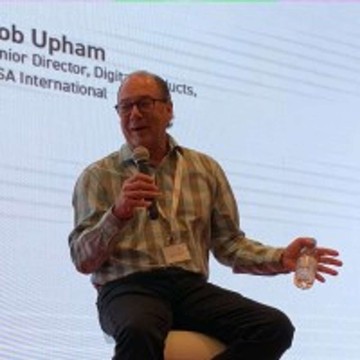
May 3, 2024 • 49min
From Pianos to PCs: Bob Upham's Tech Adventures
Welcome to the Crazy Wisdom podcast, where I, Stewart Alsop, had the pleasure of hosting Bob Upham. In this episode, we explore a variety of intriguing topics, including the roots of personal computing intertwined with the 1960s consciousness revolution, Bob’s fascinating journey from music to mastering programming, and his profound insights on the evolution of software development. We also touched on his experiences at major tech hubs and his stint at companies like IBM and Yahoo, diving into the intricacies of business development within tech. Bob shared his perspectives on the ongoing transformation of technology, emphasizing the significant shift towards more accessible programming tools and the implications of AI in software development. For those interested in connecting with Bob or attending his startup workshops, check out his LinkedIn profile Check out this GPT we trained on this episode Timestamps 00:00 - Introduction to Bob Upham and discussion on the early personal computing industry influenced by the consciousness revolution of the 1960s. 05:00 - Bob discusses his transition from music to programming, blending artistic creativity with the logical structure of software development. 10:00 - Bob recounts his early career experiences in New York during the late 70s, transitioning from mainframes to PCs, and the significance of geographical tech hubs. 15:00 - Exploration of the evolution of tech companies in the 80s, with a focus on the impact of IBM and other major corporations in shaping the technology landscape. 20:00 - Bob reflects on the bureaucratic and hierarchical nature of working at IBM, and the creativity involved in programming. 25:00 - Discussion on the business of software, the complexities of navigating corporate structures, and how the landscape of technology employment has changed with the advent of personal computing. 30:00 - Bob talks about his role at Yahoo, his work with behavioral and geo-targeting, and the early days of internet mapping services. 35:00 - The conversation shifts to the changes in software development over the years, from data entry and the manual processes of early computing to the more creative and efficient methods available today. 40:00 - Bob discusses the current state of technology, the ubiquity of programming skills, and the democratization of software development through accessible tools. 45:00 - The episode wraps up with a look at the future of technology, including AI and its potential impacts on creativity and efficiency in software development. Key Insights The Cultural Roots of Computing: Bob Upham discussed how the early personal computing industry was significantly influenced by the consciousness revolution of the 1960s. This era brought about a fusion of technology with creative and social movements, illustrating how cultural shifts can propel technological advancements. Music Meets Machine: Upham's personal journey from a musician to a programmer highlighted an intriguing crossover between the arts and technology. He shared how the structured creativity of music provided a solid foundation for software engineering, underscoring the interconnectedness of logical and creative disciplines. Tech Hub Evolution: The episode touched on the geographical shifts in the technology sector from New York and Boston to Silicon Valley. This transition marked a significant shift in the epicenters of innovation, driven by changes in technological focus and corporate culture. Corporate Culture and Bureaucracy: Bob reminisced about his time at IBM, describing it as a period dominated by bureaucracy and hierarchical structures. This insight into corporate culture provides a contrasting backdrop to the more flexible and dynamic environment prevalent in tech companies today. Impact of Personal Computing: The conversation explored the transformational impact of the personal computer, moving from the domain of mainframes and centralized systems to more accessible and individualized computing. This shift democratized technology, making it a fundamental part of everyday life. Advancements in Software Development: Bob noted the evolution of software development tools and methodologies over the decades, from cumbersome and restrictive processes to today’s streamlined and user-friendly platforms. This development has significantly reduced barriers to entering the tech field, allowing more people to innovate and create. Future of Technology and AI: Looking forward, Bob and Stewart discussed the potential of AI to revolutionize various aspects of technology and society. They contemplated how AI could further simplify complex processes and foster a new wave of creativity and efficiency in software development, pointing towards a future where technology continuously reshapes human capabilities and societal structures.

Apr 29, 2024 • 52min
The Art of Artificial: Synthetic Data and the Shaping of AI with Fabian Schonholz
Fabian Schonholz, a technology executive, discusses the impact of synthetic data on AI model training. Topics include challenges in modeling behaviors, applications in different models, enhancing data density, reducing biases, retraining with real data, and AI's role in creativity and bias mitigation.

Apr 26, 2024 • 1h 32min
Unraveling the Cosmos with Stephen Wolfram: A New Theory of Everything
Welcome to the Crazy Wisdom podcast. I'm Stewart Alsop, and in this episode, I'm joined by Stephen Wolfram, a distinguished scientist and the founder of Wolfram Research. Throughout our conversation, we explore a range of topics including Stephen's revitalized work on a fundamental theory of physics, the profound implications of this work for understanding the universe and its laws, and the intersection of these theories with computational technology and AI. We also discuss how these advanced concepts might shape future technological developments and philosophical inquiries into AI's role in society and personal identity. Timestamps [00:00:00] - Stephen Wolfram discusses revisiting his physics theory from the 1990s and the rapid advancements made since 2019. [00:05:00] - Explores implications of his physics project on AI, machine learning, and philosophical questions about the universe's existence. [00:10:00] - Describes the universe's construction from a network of discrete points, explaining emergent phenomena like black holes. [00:15:00] - Discusses the interface between the discrete network model of the universe and concepts of quantum mechanics. [00:20:00] - Shifts focus to computational theory, introducing the "Ruliad" that encompasses all possible computational rules. [00:25:00] - Talks about AI's generative capabilities and its evolving relationship with human cognition and creativity. [00:30:00] - Discusses practical applications of his theoretical work in technology development and complex systems understanding. [00:35:00] - Considers the societal and ethical implications of AI, and the concept of co-evolving with AI in a symbiotic relationship. [00:40:00] - Explores philosophical impacts of AI on human identity, decision-making, and future societal norms. [00:45:00] - Reflects on personal impacts of his work, the continuity of identity through AI, and digital legacies. [00:50:00] - Concludes with thoughts on AI's potential role in human exploration and understanding of the universe. [00:55:00] - Discusses computational thinking and the integration of computational methods in modern problem-solving. Key Insights Revival of Fundamental Physics Theories: Stephen Wolfram discussed reigniting his work on the fundamental theory of physics, an endeavor he first conceptualized in the early 1990s. He returned to these theories with fresh perspectives and the help of young physicists, leading to rapid advancements that surpassed his initial expectations, demonstrating that foundational theories in physics can evolve significantly with the incorporation of new data and technologies. Interconnection Between Physics and Computation: Wolfram elucidated how his latest work in physics unexpectedly bears significant implications for fields like AI, machine learning, and distributed computing. The formalism developed for explaining the universe has versatile applications, suggesting a profound connectivity between physical laws and computational processes. Philosophical Questions on Existence and Regularity: The conversation delved into deep philosophical questions such as why the universe exists and whether the laws of physics are inevitable. Wolfram’s approach suggests that these existential queries are not only theoretical but can be addressed in a scientific framework, proposing that our observations of the universe are deeply influenced by human perspectives and limitations. Discrete Network Model of the Universe: Wolfram proposes that the universe is constructed from a network of discrete points, which he likens to atoms of space. This model suggests that all phenomena in the universe, including particles and black holes, emerge from this underlying network, offering a novel way of understanding the fabric of space and time beyond the continuous models traditionally used in physics. Concept of the Ruliad: A significant portion of the discussion focused on the "Ruliad," a conceptual framework that encompasses all possible rules and computations. This idea broadens the scope of computational theory by suggesting a meta-level at which all possible computational processes coexist and interact, providing a new lens through which to view the universe and its complexities. AI's Impact on Creative and Intellectual Pursuits: Wolfram touched upon the transformative impact of AI on creativity and intellectual activities, suggesting that AI not only automates tasks but also enhances human capabilities in arts and sciences. This co-evolution with AI could potentially lead to new forms of art, science, and understanding, radically altering how humans engage with complex problems and creative endeavors. Symbiosis with AI: The episode concluded with a reflection on the future relationship between humans and AI. Wolfram posited that as AI continues to advance, humans will increasingly form a symbiotic relationship with these systems. This integration promises to augment human memory, decision-making, and creativity, potentially leading to a profound shift in how we perceive our capabilities and limitations in relation to technology.
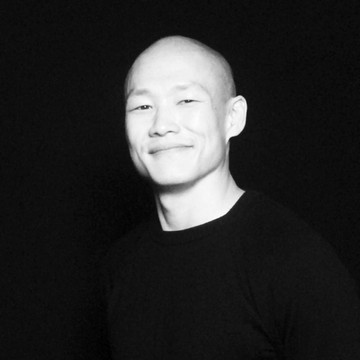
Apr 22, 2024 • 43min
AI and the Art of The Possible: A Dialogue with Albert Chun
In this episode of the Crazy Wisdom podcast, I, Stewart Alsop, had the pleasure of hosting Albert Chun, Director of Operations at Invisible Technologies. We explored the latest advancements in large language models, particularly focusing on their implications for content creation, coding, and video generation. Albert provided insights into the evolution of software engineering towards prompt engineering, the philosophical debates surrounding AI and humanity, and the impact of AI on creativity and discipline. We also discussed the role of AI in education across different socioeconomic contexts and pondered over the future of AI in decentralized systems. Albert shared some valuable resources and thoughts, including those from his experiences in educational settings. For those looking to connect with Albert or explore more about his work, you can find him on LinkedIn at Albert S. Chun's LinkedIn. Check out this GPT we trained on the convo Timestamps [00:00:00] Introduction to the podcast with Stewart Alsop and Albert Chun. Discussion on the remarkable capabilities and implications of a recent LLM update named SORA, its impact on content generation, and the significant human effort required behind improving LLMs. [00:05:00] Focus shifts to the evolving role of software engineering towards prompt engineering and the increasing complexity of tasks that LLMs can handle. [00:10:00] Albert reflects on the philosophical aspects of interacting with AI, touching on human endeavor, the essence of being human, and the potential for AI to reshape personal reprogramming. [00:15:00] Conversation moves to the impact of AI on creativity and the challenges of maintaining discipline amidst increasingly accessible creative tools. [00:20:00] Discussion on the social implications of AI in different socio-economic settings, especially concerning technology use in education. [00:25:00] Albert talks about his experiences teaching in diverse educational settings and using technology to enhance learning outcomes in lower-income neighborhoods. [00:30:00] The podcast explores potential changes in education policy and technology, including the benefits and limitations of current educational frameworks in adapting to technological advancements. [00:35:00] Focus on financial literacy in education, exploring the slow adoption of practical skills teaching in school curriculums and the broader societal implications. [00:40:00] The conversation wraps up with thoughts on the future impact of decentralized systems and technologies on societal structures and norms. Key Insights Advancements in LLMs: Albert Chun highlighted recent advancements in Large Language Models (LLMs) such as SORA, discussing its capabilities in content generation and the significant human labor involved in refining these models. This reflects a broader trend in AI development, where human input remains crucial despite increasing automation. Role of Software Engineering: The conversation shifted to how the role of software engineers is evolving towards prompt engineers and annotators. As AI grows more complex, the skills required to train and manage these models are becoming more specialized, suggesting a paradigm shift in the tech industry's labor needs. Philosophical Implications of AI: Albert and Stewart delved into the philosophical implications of AI, pondering what it means to be human in an age increasingly dominated by artificial intelligence. They discussed how AI challenges our conventional views on creativity, knowledge, and the essence of human endeavor. AI and Creativity: The discussion explored how AI might impact creativity, particularly through tools that simplify the creative process. While AI can democratize creativity by making tools more accessible, there is concern about whether this ease of use might undermine the discipline required for profound creative work. Educational Disparities and AI: Albert shared insights from his teaching experiences, highlighting how AI and technology could bridge or widen educational gaps. He emphasized the potential for technology to transform educational outcomes, especially in underprivileged areas, by enhancing engagement and learning modalities. Policy and Educational Change: They discussed the slow pace of educational reform in integrating practical skills like financial literacy into curricula. Albert expressed skepticism about whether current educational policies could adequately prepare students for a future intertwined with AI, suggesting that more proactive and innovative approaches are needed. Future of Decentralized Systems: Finally, the conversation touched on the potential for AI and technology to lead to more decentralized systems, affecting everything from governance to personal autonomy. This reflects a broader societal shift towards questioning and potentially restructuring traditional power dynamics and institutional structures.
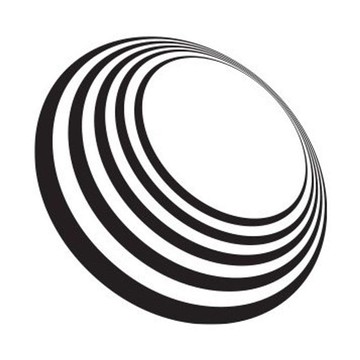
Apr 19, 2024 • 1h 35min
Southern Shifts: Exploring Tech and Expat Life with Nilrun Mardux
Welcome to the Crazy Wisdom podcast, I'm your host, Stewart Alsop. In this engaging episode, we're joined by Nilrun-Mardux, where we jump into a diverse array of thought-provoking topics. Our discussion ranges from Nilrun's experiences living as an expat in Argentina, the complex geopolitical dynamics at play, and the ever-evolving tech landscape, particularly the fascinating realm of decentralized computing and AI. Follow Nilrun-Mardux on twitter Check out this GPT we trained on this conversation Timestamps [00:05:00] Discussion on the cultural and social dynamics of expatriates in Buenos Aires, comparing the expat lifestyle to that in Mexico City. [00:10:00] Analysis of Argentina's economic isolation due to high taxation and its impact on travel and expat living costs. [00:15:00] Conversation about the unique cultural aspects of Argentina and Brazil, similarities to California, and the feeling of being disconnected from the wider world. [00:20:00] Discussion shifts to the historical context of Argentina, including its early cessation of the slave trade and its impact on Argentine culture. [00:25:00] Exploration of Argentina's tech scene, particularly in Buenos Aires, and its potential as a hub for technological innovation and expatriate networking. [00:30:00] Commentary on the social dynamics within Argentina, including the blend of long-term and short-term expats, and their integration with local Argentines. [00:35:00] Discussion on the economic challenges in Argentina, such as inflation and the black market exchange rate, and their effects on everyday life. [00:40:00] Analysis of Argentina's potential for recovery and growth, focusing on its natural resources, food production capabilities, and tech industry. [00:45:00] Examination of the political landscape in Argentina, the impact of recent elections, and predictions for future governance and policy shifts. [00:50:00] Broadening the discussion to global politics and economics, comparing Argentina's situation to other countries with similar challenges. [00:55:00] Reflections on personal experiences living in Argentina, the benefits of expat life there, and the cultural richness of Buenos Aires. [01:05:00] Analysis of decentralized computing and AI, including the potential impacts and challenges within Argentina and globally. [01:10:00] Further discussion on the tech landscape in Argentina, focusing on innovation in AI and decentralized systems, and how these technologies are being integrated into the local economy. [01:15:00] Reflections on the cultural and technological parallels between Buenos Aires and European tech hubs, examining the fusion of culture and tech in expat communities. [01:20:00] Exploration of personal experiences and anecdotes about living and working in Argentina, emphasizing the blend of local and expat cultures in tech and business. [01:25:00] Discussion shifts to broader themes of global migration trends, particularly focusing on the roles of tech professionals and entrepreneurs in shaping local economies. [01:30:00] Examination of the long-term prospects for Argentina’s tech and cultural development, considering global influences and local innovations. [01:35:00] Analysis of the impact of global policies and economic shifts on Argentina, discussing how expats and locals navigate these changes. [01:40:00] Reflective discussion on the philosophical and practical aspects of expat life, the search for community, and the impact of cultural exchange. [01:45:00] Closing thoughts on the future trajectory of Argentina’s economic and cultural landscape, emphasizing optimism and potential areas for growth. Key Insights Expat Life in Argentina: Nilrun Mardux shared his personal experiences as an expat living in Argentina, detailing both the challenges and the unexpected pleasures of settling in a new country. He discussed the initial cultural shock and adaptation process, as well as the economic nuances that come with living in a country with a volatile economy. His insights highlighted how his perception of Argentina changed over time, moving from skepticism to a deep appreciation and understanding of the local way of life. Geopolitical Dynamics: The conversation explored the broader geopolitical dynamics of living abroad, particularly in countries like Argentina which are both physically and metaphorically distant from traditional Western power centers. Mardux discussed the unique position of Argentina in global politics and economics, reflecting on how expatriates can often see these dynamics play out in everyday life more vividly. Technological Landscape: A significant portion of the discussion was devoted to the impact of technology, specifically decentralized computing and AI, in countries with emerging economies. Mardux provided insights into how these technologies are not just theoretical concepts but are actively reshaping economic structures, societal norms, and daily practices in places like Argentina. Cryptocurrency's Role: The role of cryptocurrency in circumventing economic instability was a pivotal insight. Mardux elaborated on how cryptocurrencies, particularly Bitcoin and stablecoins like Tether, are utilized by locals and expats alike to preserve wealth against inflation and capital control measures, illustrating the practical utility of digital currencies in maintaining financial stability. Cultural Integration and Differences: Throughout the episode, Mardux discussed the nuances of integrating into a new culture while maintaining one’s identity. He shared anecdotes about the cultural similarities and differences between his native and adopted homes, providing a nuanced perspective on the global expatriate experience. Decentralized Computing: Mardux and Alsop delved into the complexities and potential of decentralized computing. They discussed its implications for personal sovereignty over data and the broader impacts on internet governance and access. The conversation highlighted the transformative potential of decentralized systems to empower individuals against centralized control. Future of Expat Living: Looking ahead, the discussion touched on the future of expat living in a world increasingly influenced by global mobility and technological advancements. Mardux speculated on how the expat experience might evolve, considering changes in global work patterns, technology, and geopolitical shifts, suggesting a future where expat living could become more integrated into the fabric of global societies.

Apr 15, 2024 • 49min
From Algorithms to Empathy: Bridging AI and Human Understanding
In this thought-provoking episode of the Crazy Wisdom podcast, I, Stewart Alsop, delve deep into the evolving world of artificial intelligence with my guest, Kendra Koch. Together, we explore the nuances of AI's capabilities and its profound implications on human thought, sensory perception, and creativity. Kendra, a seasoned entrepreneur and wellness advocate, brings her rich experience and unique perspectives on how AI intersects with health and human psychology. For those interested in exploring more about Kendra Koch's work or looking for resources mentioned in the podcast, you can visit her platform focused on sensory wellness at Get Touchy Feely. This site serves as a hub for exploring tools and information designed to support individuals with sensory sensitivities, offering both a deep dive into content and practical solutions. Check out this GPT that we trained on this converation Timestamps 00:05:00 - The practical use of AI in creating content drafts and the limitations in capturing human essence in writing. 00:10:00 - Discussion on AI's impact on employment and its ability to adapt to societal changes. 00:15:00 - The influence of AI on information accuracy and the ethical considerations in AI training. 00:20:00 - Exploring human senses beyond the typical five and their implications for AI perception. 00:25:00 - The role of AI in leveling the playing field in technology and education globally. 00:30:00 - The nuances of language, culture, and the adaptive use of AI in language learning. 00:35:00 - The potential of AI in personalizing content creation and its impact on the authenticity of storytelling. 00:40:00 - Philosophical considerations on the essence of human creativity and AI's role in capturing human experiences. 00:45:00 - Kendra's current projects focusing on sensory wellness and leveraging AI to enhance user experiences in this area. Key Insights AI as a Double-Edged Sword for Cognitive Work: Kendra Koch shared that working with AI challenges the common misconception that technology simplifies cognitive tasks. Instead, she found that AI requires deeper thinking and precise communication, much like delegating tasks to humans. This insight suggests that AI's value lies not in replacing human effort but in enhancing our capacity to think and articulate clearly. Sensory Perception Beyond the Traditional Five Senses: The discussion highlighted that humans have more than the commonly acknowledged five senses, with Kendra mentioning proprioception and interoception among others. This expanded view of human sensory experience can inform how we develop AI technologies, emphasizing the need for AI systems to account for a broader spectrum of human sensory inputs. AI’s Limitations in Content Creation: Despite advancements, AI still struggles to replicate the depth and nuance of human-generated content. Kendra noted that while AI can produce a competent first draft, it lacks the ability to fully capture the 'spark' or emotional depth that characterizes compelling human writing. This underscores the ongoing challenges in AI's application in creative fields. The Impact of Training Data on AI Output: Kendra discussed how the quality of AI-generated content is heavily dependent on the training data. If AI is trained on a dataset with a high proportion of poor-quality content, the output is likely to be similarly affected. This raises important considerations for how AI models are trained, particularly in ensuring a high standard of input data. AI and the Nuance of Human Language: The episode explored how AI handles language nuances, particularly in translating unique cultural phrases or concepts. Kendra pointed out that certain expressions or nuances can be lost in translation by AI, reflecting the machine's current inability to fully grasp context and cultural depth in language. The Ethical and Social Implications of AI: Kendra and Stewart discussed the potential social implications of AI, such as job displacement and the ethical considerations of AI training. The conversation brought to light the importance of thoughtful and inclusive development of AI technologies to mitigate negative impacts and enhance societal benefits. The Future of AI in Personal and Professional Development: Looking ahead, the podcast touched on the potential for AI to democratize learning and development opportunities, particularly in coding and other technical skills. Kendra's work in Argentina using AI to help locals improve their job prospects exemplifies the positive potential of AI to level the playing field in global economic participation.

Apr 12, 2024 • 55min
Between Two Americas: A Tale of Argentina and Brazil with BowTiedMara
BowTiedMara, an expatriate economist, shares insights on Argentina's inflation rates, bureaucratic differences with Brazil, and personal journey. Discussions include political changes under President Milei, remote work implications, and cultural richness. Visit his blog bowtiedmara.io for more info.


